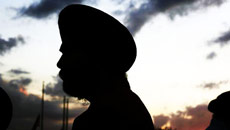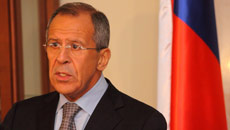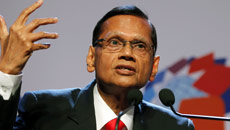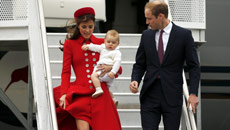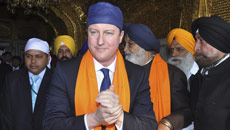NEW YORK — Donald Trump's favourite nickname for the news media is the "dishonest press." He swaps in "disgusting press" from time to time.
And sometimes, he puts it all together: "disgusting, dishonest human beings."
The presumptive Republican presidential nominee has a whole menu of takedowns for individual reporters and news organizations. In recent weeks, he's used his microphone and his tweets to label them "third-rate," ''not nice," ''disgraceful," ''phoney," ''low-life," ''very unprofessional" and "bad people." Or, for extra emphasis in a tweet, "BAD."
He's also been quick to yank or withhold credentials from news organizations whose coverage he doesn't like — most recently, The Washington Post.
Trump seems to be perpetually mad at the press, but there's a method to his mad-ness.
He sees little downside to bashing the media — and plenty of potential benefits.
"It's a truism of American politics that you don't lose an election by criticizing the media," said Robert Lichter, president of the private Center for Media and Public Affairs. "It plays well with the public, particularly with Republicans."
While Trump's language is more incendiary and he lashes out more personally at reporters than typical for past candidates, he's following a long tradition of modern politicians who shoot barbs at the messenger.
Former President Dwight Eisenhower energized the 1964 Republican convention with his complaint about "sensation-seeking columnists and commentators."

Richard Nixon's vice-president, Spiro Agnew, famously threw shade at "nattering nabobs of negativism" in the press.
President George H.W. Bush, who played horseshoes with press photographers and invited reporters to White House picnics and other events, still exhorted voters during his re-election campaign to act on the bumper-sticker slogan: "Annoy the Media: Re-elect Bush." His wife, Barbara, had some biting advice for Hillary Clinton when the incoming first lady visited the White House in November 1992: "Avoid this crowd like the plague," Bush told Clinton, sweeping her hand toward the reporters and photographers on the South Lawn.
Trump is taking the beat-the-press strategy to a whole new level.
In a recent one-month period, he delivered 39 tweets skewering reporters and media organizations, mixed in with a much smaller number of positive and neutral references in his Twitter feed. Just one example: "The media is really on a witch-hunt against me. False reporting, and plenty of it - but we will prevail!"
This week, Trump revoked the Post's credentials, citing what he called the paper's "incredibly inaccurate coverage and reporting." Other news organizations he's banned, either short-term or permanently, include Politico, the Des Moines Register, BuzzFeed, the Daily Beast and the Huffington Post.

Post editor Martin Baron called Trump's latest move "nothing less than a repudiation of the role of a free and independent press."
Kathleen Carroll, executive editor of The Associated Press, said his credentialing bans do a disservice to the public.
In the race for the most powerful position on the planet, she said, "the public is interested in what the candidates do and say, and having independent coverage is part of what keeps the public informed."
Why is Trump so quick to pick a fight with the press?
For one thing, his over-the-top language can be a successful strategy for changing the subject when he wants to divert attention.
Last month, when reporters pressed Trump to document what he'd done with millions of dollars raised for veterans, he turned on them, calling one reporter "a sleaze" and sarcastically referring to another as "a real beauty." That language itself became a big part of the story, shifting some of the attention away from questions about his handling of the money for veterans.
Trump's constant criticism of the press also helps to inoculate him against future negative news stories.
Conservatives, in particular, already are wary of the mainstream media, and Trump's rhetoric reinforces the message that nothing from the media is to be believed.

"Part of what he's probably decided is that he wants to be very aggressive, to make sure that his supporters routinely discount any kind of news media attack," former House Speaker Newt Gingrich, a Trump supporter, said in a recent interview with Fox News.
With the Republican Party in turmoil over Trump's candidacy, the billionaire's broadsides also serve as a unifying theme within the party. GOP faithful may have big differences with Trump on the issues, but they're at one with him on contempt for the mainstream media.
While Trump's very public display of disdain is strategic, says Lichter, it's also just "part of his daily dose of pugnacity."
At the same time, though, Trump can be charming in one-on-one interviews, flattering reporters and complimenting their questions. He calls many of them by their first names. He takes questions and offers considerable access, seeming to understand that for all his complaints about the press, he can't live without them.
"You know the press is the most dishonest people ever created by God," he said at a March press conference. "So I would love to take a few questions from these dishonest people. Go ahead, press."
